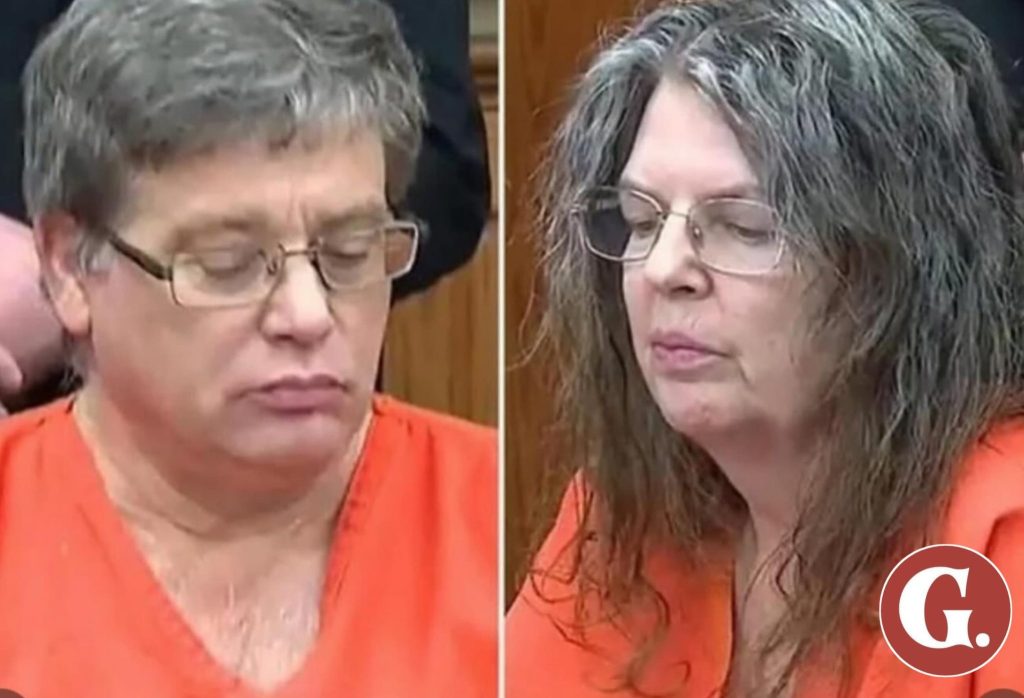White Adoptive Parents Convicted of Human Trafficking and Forced Labor of Five Black Children—Sentenced to a Combined 375 Years in Prison
In one of the most disturbing child abuse cases in recent American history, a white couple from West Virginia has been sentenced to a combined total of 375 years in prison for subjecting five Black children—whom they had legally adopted—to what a judge described as modern-day slavery. Donald Ray Lantz, age 63, and Jeanne Kay Whitefeather, age 62, stood trial earlier this year after authorities uncovered the horrifying truth behind their carefully hidden life in Sissonville, a rural area near Charleston, West Virginia. What appeared to the outside world as a quiet home with a family of adopted children turned out to be a prison of abuse, degradation, and unthinkable cruelty.
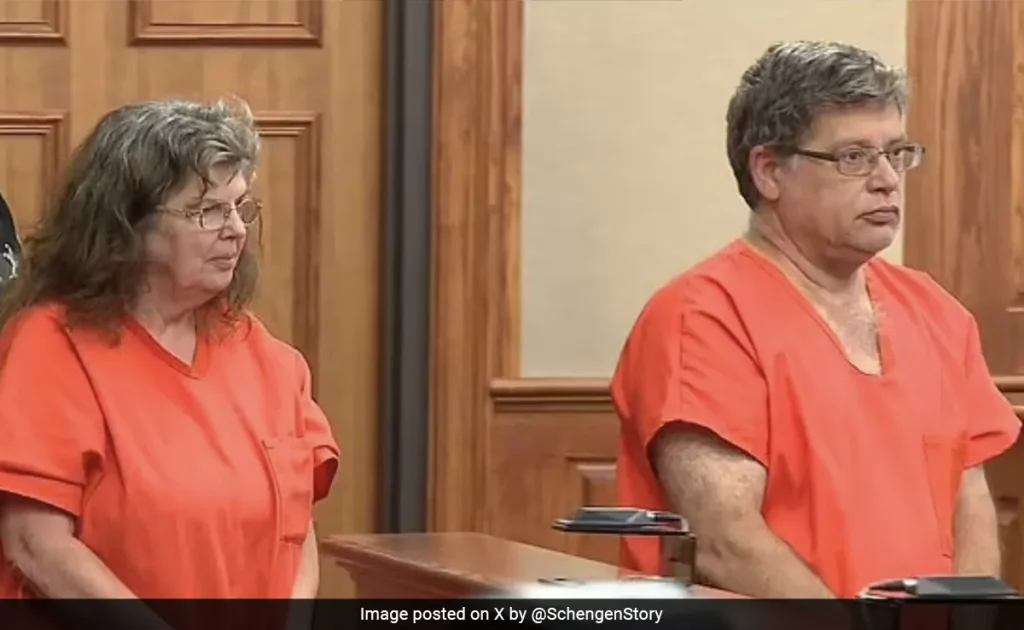
The investigation began in October 2023, when Kanawha County deputies responded to a welfare check at the couple’s residence. What they found would change everything. Two children were discovered locked inside a tiny 20-by-14-foot shed behind the house. The shed had no lighting, no plumbing, and no bedding. The children had only a bucket for a toilet, and the stench of urine and decay filled the space. The room was so hot, officers described it as unbearable. That moment launched a broader investigation that would expose a chilling pattern of control and cruelty inside the home.
The five children had been adopted by the couple through legal channels, raising serious questions about the oversight of the adoption and child welfare system. According to testimony presented during the trial, the children were forced into extreme labor on the couple’s rural property. They were made to dig trenches with their bare hands, tend to livestock, and carry out manual labor for long hours without proper nourishment, clothing, or rest. They were not treated as children or family members—they were treated as property.
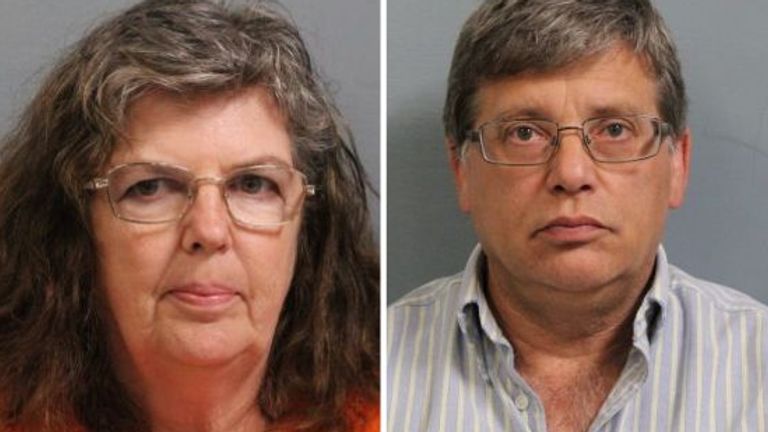
The oldest of the children, now 18, offered detailed and emotional testimony in court. She spoke of the punishments she and her siblings endured: being forced to stand for long periods with hands behind their heads, being pepper sprayed for minor infractions, and being denied food and water. She described how they were fed mostly peanut butter sandwiches and denied access to clean drinking water unless they completed tasks or showed complete submission. They were regularly told they were worthless, that no one would ever believe them if they tried to speak out. Their world was small, controlled, and terrifying.
What shocked many was not only the conditions but the deliberate nature of the abuse. Prosecutors argued that the couple intentionally adopted Black children for the purpose of exploiting them. During the trial, they presented evidence of repeated patterns of racial abuse and dehumanization, citing the couple’s use of slurs and their belief that they could get away with it because no one would care. The jury found these claims credible, and Whitefeather was specifically convicted on civil rights violations tied to race.
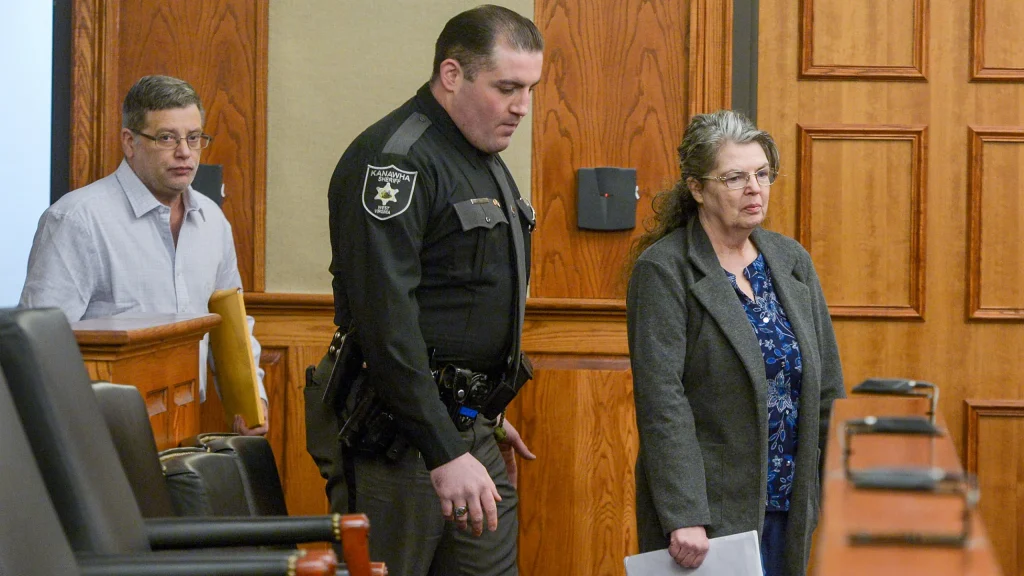
The sentencing took place in March 2025 and delivered a strong message. Judge Maryclaire Akers sentenced Whitefeather to up to 215 years and Lantz to up to 160 years. During the sentencing hearing, Judge Akers did not hold back. She told the couple, “You brought these children to a place that many know as ‘Almost Heaven,’ and you put them in hell. This court will now put you in yours.” The courtroom was silent as the sentences were read. Some cried. Others sat in stunned disbelief. But there was also a sense of relief—relief that justice had finally arrived for the children who had been failed for so long.
The story has since spread far beyond West Virginia, igniting debates about systemic racism, child welfare, and accountability. Many have asked how a couple with no qualifications for special needs parenting and a history of suspected abuse were able to adopt five children of color. Child welfare experts now say the case highlights serious gaps in background checks, home visit protocols, and long-term monitoring for adoptive families. These failures allowed the abuse to continue unchecked for years.
The children are now safe and receiving trauma-informed care in separate protective homes. According to social workers and therapists, the healing process is slow and complicated. The children experience frequent nightmares, deep distrust of adults, and difficulty processing kindness after years of mistreatment. But they are also showing signs of resilience. The oldest daughter, despite all she endured, has expressed interest in becoming a social worker so she can protect other children who might be suffering in silence. Her strength has become a light in this dark story.
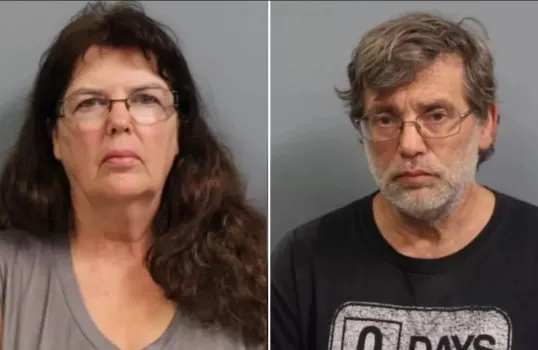
One cannot talk about this case without addressing the racial component. These were Black children adopted by white parents in a predominantly white area. They were stripped of their cultural identity, their safety, and their humanity. Advocates argue that race played a role not just in the abuse itself, but in the lack of scrutiny by officials. There’s a growing call for mandatory racial sensitivity training in child welfare agencies, more diverse oversight panels, and stricter standards for cross-racial adoptions. Because what happened to these five children didn’t happen in a vacuum. It happened in a country where race still too often determines whose pain gets noticed and whose voice gets heard.
The case has left an indelible mark on West Virginia’s legal and social systems. Lawmakers are proposing reforms to strengthen adoption safeguards. The Department of Health and Human Resources is conducting a full audit of its oversight procedures. And prosecutors say they hope this case becomes a national turning point—not just for how we punish abusers, but for how we protect the most vulnerable.
As for the community, it remains haunted. Neighbors say they never imagined such horror was unfolding so close to home. Some now admit they had suspicions but didn’t speak up. Others say they trusted the system too much. But today, that silence has been broken. The truth is out. And those responsible are behind bars.
In the end, this is a story about survival. About five children who were robbed of their childhood, but who are now free to rebuild their futures. It’s also a reminder—painful but necessary—that justice cannot undo trauma, but it can affirm dignity. And in this case, it did both. The road ahead for the survivors will not be easy, but it will be theirs. And that is something their abusers can never take back.
